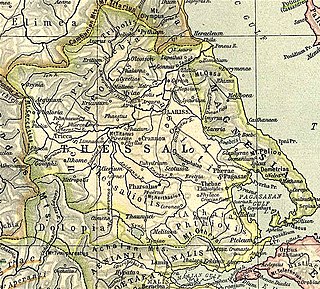 W
WApollo is one of the Olympian deities in classical Greek and Roman religion and Greek and Roman mythology. The national divinity of the Greeks, Apollo has been recognized as a god of archery, music and dance, truth and prophecy, healing and diseases, the Sun and light, poetry, and more. One of the most important and complex of the Greek gods, he is the son of Zeus and Leto, and the twin brother of Artemis, goddess of the hunt. Seen as the most beautiful god and the ideal of the kouros, Apollo is considered to be the most Greek of all the gods. Apollo is known in Greek-influenced Etruscan mythology as Apulu.
 W
WAbellio was a god worshiped in the Garonne Valley in Gallia Aquitania, known primarily by a number of inscriptions which were discovered in Comminges, in the Pyrenees. He may have been a god of apple trees or the sun.
 W
WApollo and Daphne is a story from ancient Greek mythology, retold by Hellenistic and Roman authors in the form of an amorous vignette.
 W
WThe Apollonian and the Dionysian are philosophical and literary concepts represented by a duality between the figures of Apollo and Dionysus from Greek mythology. Its popularization is widely attributed to the work The Birth of Tragedy by Friedrich Nietzsche, though the terms had already been in use prior to this, such as in the writings of poet Friedrich Hölderlin, historian Johann Joachim Winckelmann, and others. The word Dionysian occurs as early as 1608 in Edward Topsell’s zoological treatise, The History of Serpents. The concept has since been widely invoked and discussed within Western philosophy and literature.
 W
WAthena and Phevos were the official mascots of the 2004 Summer Olympics and Proteas was the official mascot of the 2004 Summer Paralympics, both held in Athens, Greece.
 W
WThe Chatsworth Head is a slightly over-life-size bronze head dating to around 460 BCE which is now in the British Museum.
 W
WThe Delphic Hymns are two musical compositions from Ancient Greece, which survive in substantial fragments. They were long regarded as being dated circa 138 BC and 128 BC, respectively, but recent scholarship has shown it likely they were both written for performance at the Athenian Pythaides in 128 BC. If indeed it dates from ten years before the second, the First Delphic Hymn is the earliest unambiguous surviving example of notated music from anywhere in the western world whose composer is known by name.
 W
WHylates was a god worshipped on the island of Cyprus who was later likened to the Greek god Apollo. His name probably derives from ὑλακτέω [ʰylaktéō] "barking" or ὕλη [ʰýlē] "forest", which is why Lebek calls him Apollo of the woods. He was worshipped from the 3rd century BC until the 3rd century AD.
 W
WLyctus or Lyttos, was one of the most considerable cities in ancient Crete, which appears in the Homeric catalogue. Lyttos is now a village in the municipality of Minoa Pediada.
 W
WPythion or Pythium, also Pythoion (Πύθοιον) was a city and polis (city-state) of Perrhaebia in ancient Thessaly, situated at the foot of Mount Olympus, and forming a Tripolis with the two neighbouring towns of Azorus and Doliche. Pythion derived its name from a temple of Apollo Pythius situated on one of the summits of Olympus, as we learn from an epigram of Xeinagoras, a Greek mathematician, who measured the height of Olympus from these parts. Games were also celebrated here in honour of Apollo.
 W
WThe Hellespontine Sibyl was the priestess presiding over the Apollonian oracle at Dardania. The Sibyl is sometimes referred to as the Trojan Sibyl. The word Sibyl comes from the ancient Latin word sibylla, meaning prophetess or oracle. The Hellespontine Sibyl was known, particularly in the late Roman Imperial period and the early Middle Ages, for a claim that she predicted the crucifixion of Jesus Christ. This claim comes from the Sibylline Oracles, which are not to be confused with the Sibylline Books.